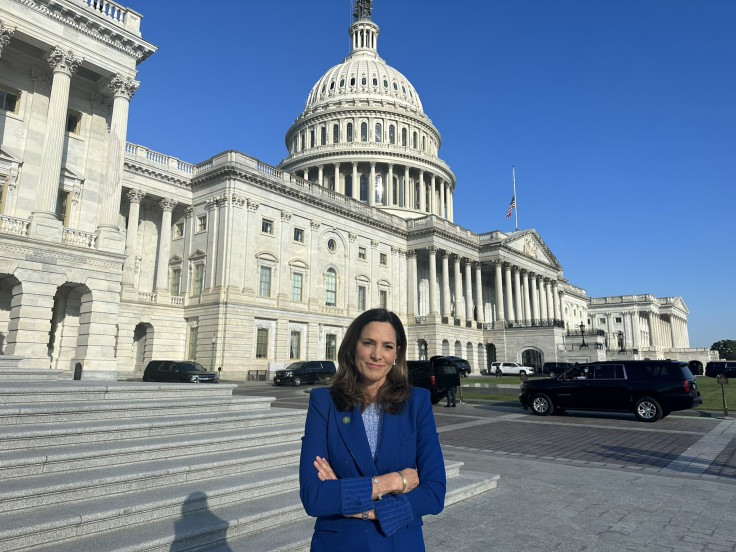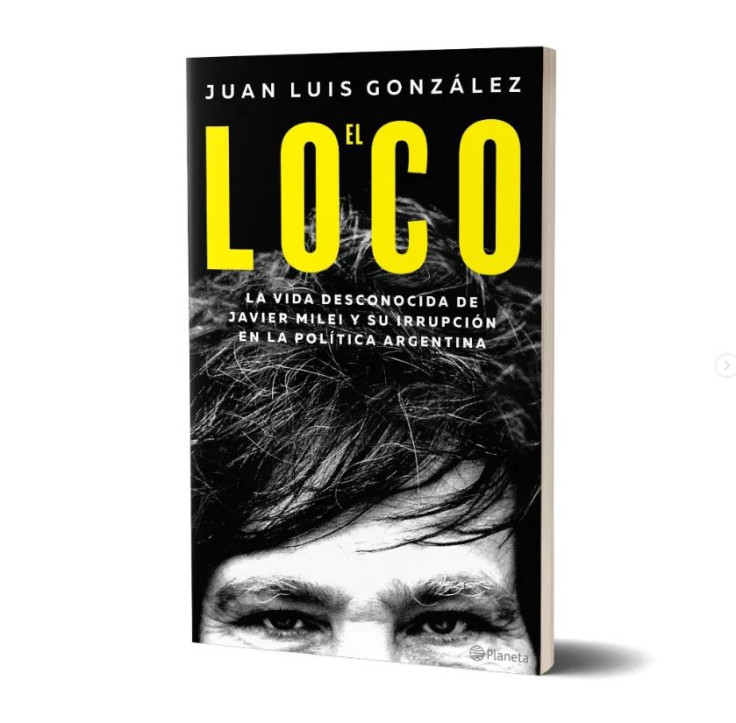
Republican congresswoman María Elvira Salazar, a daughter of Cuban exiles, stirred controversy after describing Argentina as a country "completely homogenous" with "a single culture, a single religion, and a single race."
In a video posted on X (formerly Twitter) days before the nation's presidential runoff last Sunday, the U.S. representative for Florida's 27th congressional district voiced her support for now president-elect Javier Milei: "Argentinians face a choice between socialism and freedom, and I hope they make no mistake!," she said.
Without directly naming Milei, Salazar encouraged Argentines to support the candidate, who has already established communication with to former President and likely candidate in the 2024 elections, Donald Trump. In fact, Trump is expected to attend Milei's inauguration on December 10.
"We want Argentina to be one of the first countries in the world because it is what it deserves: a country that has everything. It has soybeans, it has meat, it has minerals, it has land, it has water, and it has a single culture, a single religion and a single race; completely homogeneous," Salazar added in her video.
This notion, however, has been debunked throughout the years. The Latin Times talked to a lawyer, a sociologist and a political analyst to understand where the belief might come from and the facts contesting Salazar's statements.
Alejandro Mamani, an Argentinian lawyer specialized in Migratory Law and referent of the group Identidad Marrón (Brown Identity in Spanish), explained that "speaking of racial homogeneity in Argentina is to align with a myth." He pointed out that over 50% of the population has indigenous ancestry, rising to 90% in some provinces. According to the head of Genetic Fingerprints at the School of Pharmacy and Biochemistry at the University of Buenos Aires, 60% of Argentines have indigenous traces.
"The myth of a White Argentina is quite widespread in the world and can be seen mostly in social media. It is a sum of prejudice that makes brown identities invisible, that assumes that Argentines are all descendants of European immigrants and that there is no racism, which isn't true. Our racism has only been different."
In Argentina, local outlet Red/Accion says, the number of indigenous people is likely underreported, as many individuals may not identify themselves as belonging to or descending from these communities. According to the 2010 National Census data, only 2.4% of the national population identifies as indigenous. However, in the Northern and Southern regions of the country, this percentage was notably higher, reaching up to 9%.
When it comes to religion, Máximo Reina, an Argentine sociologist and researcher at the University of Buenos Aires, explained that Argentina "is not so different" to the U.S. He detailed that "according to recent data from Ceil Conicet (2019), in Argentina we have 63% Catholics, 15% Evangelicals, almost 20% do not observe any religion and only less than 3% in other faiths".
Reina also cited data from the Pew Research Center showing that in the U.S. the scenario is the following: 50% Evangelicals, 20% Catholics, 23% who do not observe any religion and 6% profess other religions.
Reina said he doesn't believe Salazar's statements have a significant impact on public opinion: "The concerns of Argentines today are directly linked to their economy, inflation, low wages, precarious work and on the other hand, insecurity."
Milei's Triumph and the "hope" for a change in economy

Argentine political journalist Juan Luis González, author of "El Loco" (The Madman, in Spanish), the unauthorized biography of the president-elect, affirmed that this ideas of a homogenous society do not match with Milei or his victory either.
"The reality of Argentina does not fit that idea, neither does with Milei himself," considering he has gone from Catholicism to Judaism, he said to The Latin Times.
The political analyst said Milei's early supporters were primarily drawn to him because of the "hope" of a better future, embodied in proposals such as ditching the peso and adopting the dollar as currency: "Even if it my not be the case, Milei managed to present himself as the new face of change, embodying a certain rebelliousness. This is what resonated with the younger voters".
Entrevisté a Milei en 2020, cuando era un economista desafiante. Hoy fue elegido Presidente de los argentinos y demostró que sí es posible derrotar al Socialismo en América Latina.
— María Elvira Salazar 🇺🇸 (@MaElviraSalazar) November 19, 2023
¡Mis felicitaciones a la Argentina y mi abrazo al presidente electo, @JMilei!
¡Viva la LIBERTAD! pic.twitter.com/INprXepdAn
Gonzalez pointed out that the promises on the economy held more sway in the outcome than other factors such as those implied in Salazar's video. "I don't perceive the support of the new right wing, embodied by Villarruel (Milei's running mate), as a defining factor in this election," remarked Gonzalez.
Vice-president-elect Victoria Villarruel has caused controversy for stances such as advocating for ending trials for crimes against humanity committed during the last dictatorship. She has positioned herself as a conservative leader, voicing her opposition to the legalization of abortion, sexual diversity and gender equality policies.
© 2025 Latin Times. All rights reserved. Do not reproduce without permission.




